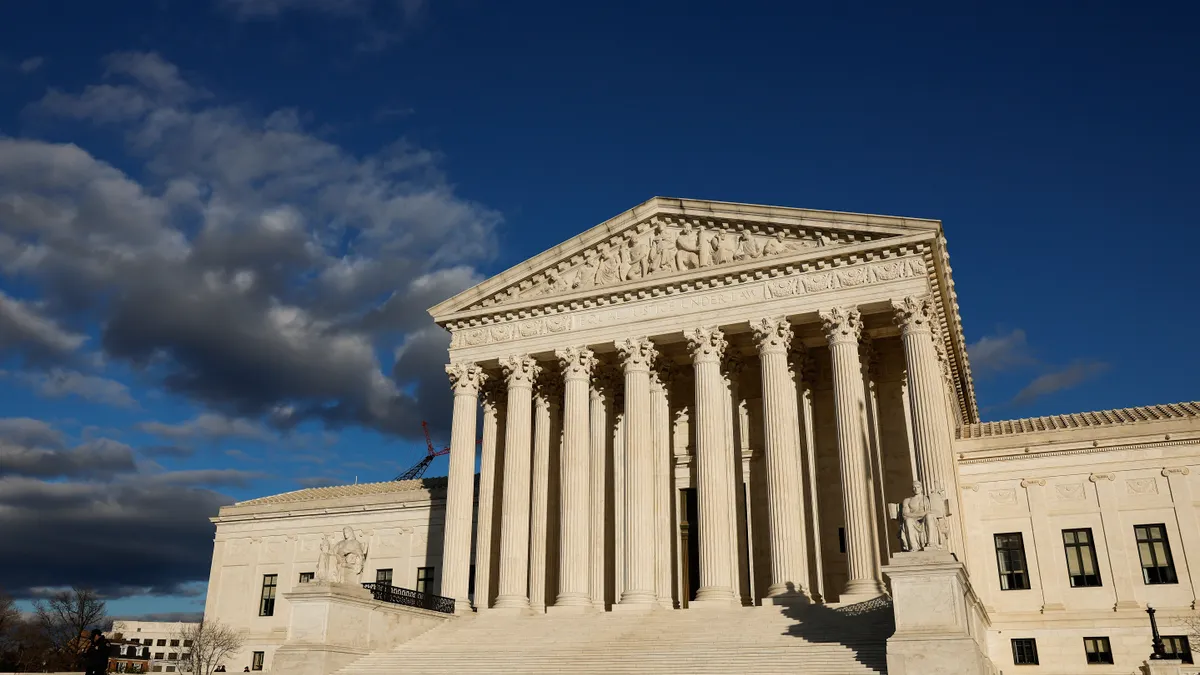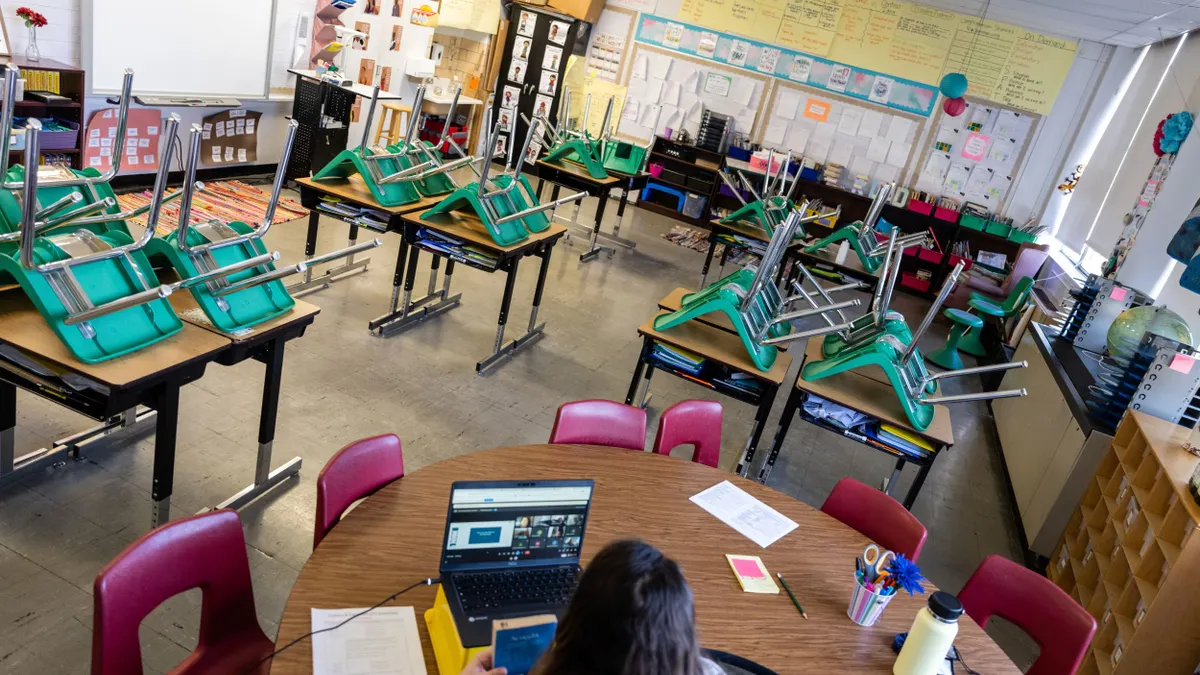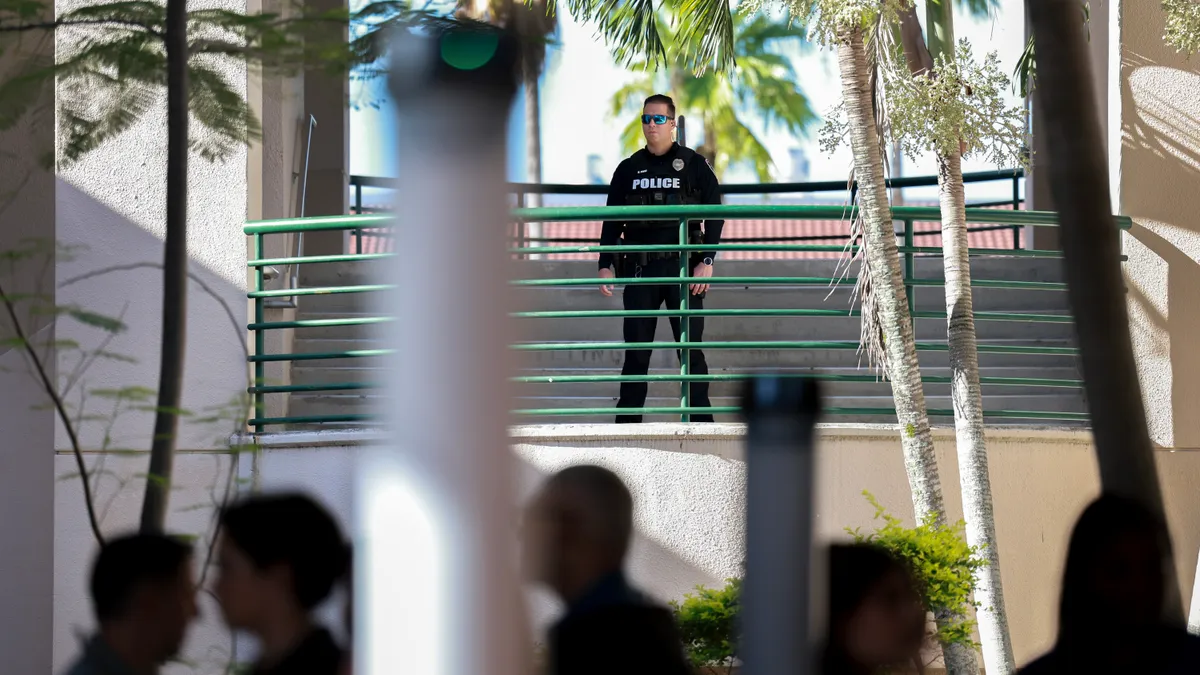The U.S. Supreme Court is set to hear two cases next term with potential implications for K-12 schools nationwide.
With oral arguments set for Oct. 7, Williams v. Washington will address whether state administrative remedies must be exhausted before bringing a lawsuit against local government officials for violating civil rights.
The case comes from Alabama residents who filed unemployment compensation claims with the Alabama Department of Labor. However, after "extreme delays" from the department in processing their claims, the residents filed a lawsuit alleging that the state violated their federal constitutional rights.
The Supreme Court of Alabama dismissed the case because the residents didn't "exhaust the administrative appeals process," a legal doctrine that requires a person to seek all avenues to resolve an issue with an agency before suing in state or federal court.
The case could impact the K-12 sector in areas like special education.
The Supreme Court unanimously decided on a similar case in 2023 against Michigan’s Sturgis Public Schools. In Perez v. Sturgis Public Schools, justices ruled that people who have entered into a settlement resolving claims under the Individuals with Disabilities Education Act can also pursue monetary damages against school districts under the Americans with Disabilities Act.
That case hinged as well on whether "exhausting the administrative process" was a prerequisite to an ADA lawsuit. The justices said that IDEA's exhaustion requirement did not prevent an individual from seeking relief under ADA, because IDEA could not provide financial relief.
However, in their rare 9-0 opinion, the justices did not address whether the exhaustion requirement can be sidestepped in cases where completing the administrative process would be futile.
The Williams case addresses a slightly different question — whether individuals can sue a government agency or officials for violating their civil rights, rather than for financial compensation as in Sturgis, before pursuing all state administrative remedies possible. While not directly related to special education, the case could nonetheless have implications on schools in this area.
In a case with a direct effect on school districts, the justices on Nov. 4 will hear arguments in Wisconsin Bell, Inc. v. United States. That case challenges whether schools' reimbursement requests under the Federal Communication Commission's E-rate program can be considered "claims" subject to the False Claims Act.
The E-rate program disperses up to nearly $4.5 billion each year, according to case documents. Last year, E-rate allowed more than 1,600 telecommunications services providers to perform $2.46 billion in reimbursable work for 132,000 schools and libraries enrolled in the program.
The 2024 term will kick off after a string of education-related cases have led to upheaval in a few areas in recent years.
In 2023, the court ruled against race-conscious admissions, overturning a longstanding admissions practice in higher education meant to diversify incoming student classes. The case led K-12 schools to mobilize in an effort to counteract the decision by focusing on strategies to ensure Black, Hispanic and Indigenous students who have historically been disadvantaged in the admissions process are better prepared and supported.
And in its most recent round of decisions, the court chose to overturn the Chevron doctrine, a legal precedent that gave federal agencies the power to interpret and enforce laws. The decision deferred interpretation to the courts instead, which is expected to have widespread consequences for the Department of Education and its regulations.
The court also weighed in on several cases blurring the lines between public and private spheres in K-12.
Two of them gave private institutions access to public funding regardless of the dollars' religious use or the school's religious status.
The cases, Carson v. Makin and Espinoza v. Montana Department of Revenue, eventually prompted the creation of the nation's first religious charter school. That school, however, is being held up by continuing litigation, most recently having been dealt a major blow by the Oklahoma Supreme Court. Oklahoma Attorney General Gentner Drummond has said he is willing to appeal the case all the way to the Supreme Court — which means the justices may see the case on their list of petitions in a future term.







 Dive Awards
Dive Awards













